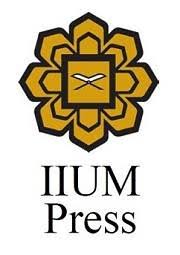نقد نظرية الإمامة الاثني عشريّة عند البرقعي من خلال تفسيره
al-Burqaʿī's Refutation Against the Imāmites in his Exegesis
DOI:
https://doi.org/10.31436/alburhn.v1i1.93Keywords:
Tafsir al-Burqaʿī, The Twelvers Shīʿites, Refutations, Sects in Islam, Exegetical MethodAbstract
religion (Usul al-Din), namely faith in Allah, His angels, His Books, His Apostles, and the Last Day. No human can deny any of them, neither can add anything to it regardless of his social rank. However, it is found that the theory of the “twelve Imamate of Shiite” which has become the origins of the Shi'ah belief has separate them from other doctrines, to the extent that it is considered as higher than the level of prophecy among some of them. In doing so, the twelve Imamate of Shiite wrongly cited and interpreted a number of verses of the Holy Qurʾān to support their imamate claim. Many scholars and Qur’anic commentators have refuted this argumentation including al-Burqa'i, who had blessed efforts to respond to it within his interpretation of the Holy Qur’an (Tafsīr al-Burqa'i). This article attempts to study and analyze the method of al-Burqa'i in refuting Shiite’s misinterpretation, which has been put forward by them as their evidences to prove the imamate as one of the fundamental of the religion. The study concludes that any fundamental doctrine of a religion must be based on a right method of interpretation of Divine Revelation and any inclusion or exclusion of which is contrary to the truth and reason together do not benefit the absolute science of certainty (yaqīn).
Downloads
References
Abū al-Ḥusayn, Aḥmad ibn Fāris ibn Zakariyyā al-Rāzī. (1979). Maqāyīs al-Lughah, Beirut: Dār al-Fikr al-ʿArabī li’l-Nashr wa’l-Tawzīʿ.
Abū al-Fatḥ, Muḥammad ibn ʿAlī al-Karājikī. (1416H). Dalīl al-Naṣṣ bi Khabar al-Ghadīr ʿalā Imāmah Amīr al-Muʾminīn, Muʾassasah Āl al-Bayt li Iḥyāʾ al-Turāth.
Abū al-Faḍl al-Barqaʿī. (2014) ʿArḍ Akhbār al-Uṣūl ʿalā al-Qurʾān wa’l-ʿUqūl. al-Saʿūdiyyah: Maktabah al-Obeikan.
Abū al-Faḍl al-Barqaʿī. (n.d.). Tābshī Az Qurʾān (Arabic: Qabas min al-Qurʾān). Tehran: Maʿhad al-Ṣiḥāfah Aʿṭāʾī,.
Abū al-Faḍl al-Barqaʿī. (n.d.). Sawāniḥ al-Ayyām, "Ayyām min Ḥayātī Mudhakkirāt Ḥayāh ʿĀlim Dīn Muṣliḥ fī Īrān", Riyadh: n.p.
Abū al-Faḍl Muḥammad ibn Mukrim. (1414H). Lisān al-ʿArab. Beirut: Dār Ṣādir.
Abū al-Ḥasan ʿAlī ibn Ibrāhīm al-Qummī. (1404H). Tafsīr al-Qummī, Muʾassasah Dār al-Kutub li’l-Ṭibāʿah wa’l-Nashr.
Abū al-Maʿālī al-Juwaynī. (1400H). Ghayyāth al-Umam fī al-tayyath al-Ẓulam. Miṣr: Dār al-Daʿwah al-Iskandariyyah.
al-Bukhārī. (1987). al-Jāmiʿ al-Ṣaḥīḥ, (Beirut: Dār Ibn Kathīr).
Taqī al-Dīn Abū al-ʿAbbās Aḥmad ibn ʿAbd al-Ḥalīm Ibn Taymiyyah. (1997). Mukhtaṣar Minhāj al-Sunnah. Sanaa: Dār al-Ṣiddīq li’l-Nashr wa’l-Tawzīʿ.
Ḥamd Ḥusayn al-Ṭabāṭabāʾī. (1997). al-Mīzān fī Tafsīr al-Qurʾān. Beirut: Muʾassasah al-Aʿlamī li al-Maṭbūʿāt.
Ḥaydr ʿAlī Qalamdarān. (1435H). Ṭarīq al-Ittiḥād aw Dirāsah wa Tamḥīṣ Riwāyāt al-Naṣṣ ʿalā al-ʾAʾimmah. Riyadh: Dār al-ʿAqīdah li’l-Nashr wa’l-Tawzīʿ,
Khālid ibn Muḥammad ibn Ṣāliḥ al-Badīwī. (2006). Aʿlām al-Taṣḥīḥ wa al-Iʿtidāl: Manāhijuhum wa ʾĀrāʾuhum. Riyadh: Maktabah al-Malik Fahd al-Waṭaniyyah.
al-Zabīdī, Maḥmūd ibn Maḥmūd ibn ʿAbd al-Razzāq al-Ḥusaynī, Abū al-Fayḍ. (n.d.). Tāj al-ʿArūs min Jawāhir al-Qāmūs. Beirut: Maktabah al-Ḥayāh.
Shams al-Dīn Abū ʿAbd Allāh Muḥammad ibn Aḥmad ibn ʿUthmān al-Dhahabī. (1985). Sīyar Aʿlām al-Nubalāʾ. Beirut, Muʾassasah al-Risālah.
al-Ṭabarsī, al-Faḍl ibn al-Ḥasan. (2006). Majmaʿ al-Bayān fī Tafsīr al-Qurʾān. Beirut: Dār al-Murtaḍā.
al-Ṭabarī, Muḥammad ibn Jarīr ibn Yazīd. (2000). Jāmiʿ al-Bayān fī Taʾwīl al-Qurʾān, Beirut: Muʾassasah al-Risālah.
Ibn Khaldūn, ʿAbd al-Raḥmān ibn Muḥammad. (1988). Dīwān al-Mubtadaʾ wa al-Khabar fī Tārīkh al-ʿArab wa al-Barbar wa Man ʿĀsharahum min Dhawī al-Shaʾn al-Akbar. Beirut: Dār al-Fikr.
ʿAbd Allāh al-Shibr. (2006). Tafsīr al-Qurʾān al-Karīm. Miṣr: Maktabah al-Alfayn.
al-ʿAsqalānī, Aḥmad ibn ʿAlī ibn Ḥajar Abū al-Faḍl. (1379H). Fatḥ al-Bārī Sharḥ Ṣaḥīḥ al-Bukhārī. Beirut: Dār al-Maʿrifah.
al-Qurṭubī, Shams al-Dīn Abū ʿAbd Allāh Muḥammad ibn Aḥmad. (1964). al-Jāmiʿ li Aḥkām al-Qurʾān. Cairo: Dār al-Kutub al-Miṣriyyah.
Muḥammad Bāqir al-Majlisī. (1430H). Biḥār al-Anwār al-Jāmiʿah li Durar Akhbār al-ʾAʾimmah al-Aṭhār. Maṭbaʿah Nūr al-Waḥyi.
Muḥammad ibn Yaʿqūb al-Kulaynī. (1389H). al-Kāfī fī al-ʾUṣūl. Dār al-Kutub al-Islāmiyyah.
Muḥammad Jawād Mughanniyyah. (2004). al-Tafsīr al-Mubīn. Dār al-Kutub al-Islāmī.
Muḥammad Ṣāliḥ al-Māzandarānī. (2008). Sharḥ Uṣūl al-Kāfī, Lubnan: Muʾassasah al-Tārīkh al-ʿArabī.
Nāṣir ibn ʿAbd Allāh ibn ʿAlī al-Qifārī. (1994). Uṣūl Madhhab al-Shīʿah al-Imāmiyyah al-Ithnā ʿAshariyyah. Riyadh: n.p.
Hāshim al-Ḥusaynī al-Baḥrānī. (2006). al-Burhān fī Tafsīr al-Qurʾān. Beirut: Muʾassasah al-ʾAʿlamī li al-Maṭbūʿāt.
Downloads
Published
How to Cite
Issue
Section
License
In general, reusing or reproducing substantial portions of al-Burhān content requires permission. This includes the use of text, figures, tables, multimedia content, and any other material published in any issues of al-Burhān Journal of Qur'an and Sunnah Studies. For some instances, al-Burhān may make its content freely viewable; however, such material may require permission for reuse. To seek permission, please contact the editorial.









